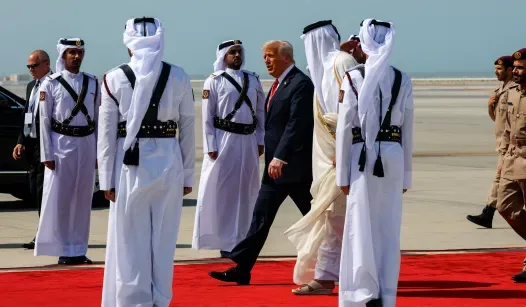Donald Trump’s America First foreign policy took an unexpected turn this week with the announcement of a unilateral security guarantee for Qatar. This decision raises significant questions about the implications of such a move and whether it aligns with the interests of the United States and its broader foreign policy objectives in the Middle East.
Historically, the U.S. has maintained a complex relationship with Qatar, a small but strategically located nation in the Gulf region. While Qatar has been a key ally in the fight against terrorism and has hosted U.S. military bases, its ties with Iran and support for groups like the Muslim Brotherhood have often put it at odds with other U.S. allies in the region, particularly Saudi Arabia and the United Arab Emirates.
The timing of Trump’s announcement is particularly noteworthy. As tensions continue to rise in the Middle East, particularly with Iran, the U.S. must carefully consider its alliances and the potential fallout from unilateral commitments. By extending a security guarantee to Qatar, Trump risks alienating other regional partners who may view this move as a sign of favoritism or a shift in U.S. policy that undermines collective security efforts.
Critics of the decision argue that a security guarantee could embolden Qatar to pursue policies that are not in line with U.S. interests. For example, Qatar’s financial support for extremist groups and its close relationship with Iran could complicate U.S. efforts to stabilize the region. Instead of fostering peace and cooperation, this guarantee might inadvertently encourage further discord among Gulf nations.
Moreover, the decision raises questions about the U.S.’s commitment to a balanced approach in the Middle East. The region is rife with complex dynamics, and unilateral actions can have unintended consequences. A more collaborative approach, involving all key players, would likely yield better results in promoting stability and security.
As the U.S. navigates its foreign policy in the Middle East, it must prioritize a strategy that emphasizes diplomacy and multilateral cooperation. A security guarantee for Qatar should not come at the expense of relationships with other allies in the region. The U.S. must strive to be a unifying force rather than a divisive one, ensuring that its actions contribute to a more stable and peaceful Middle East.
In conclusion, while the U.S. has legitimate interests in maintaining a strong relationship with Qatar, a unilateral security guarantee is not the right approach. It risks undermining U.S. credibility and could lead to further instability in an already volatile region. A balanced, diplomatic strategy that considers the interests of all allies is essential for achieving long-term peace and security in the Middle East.
